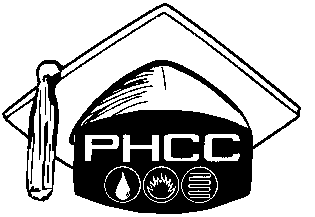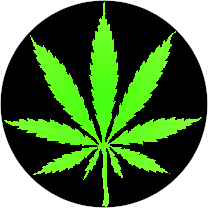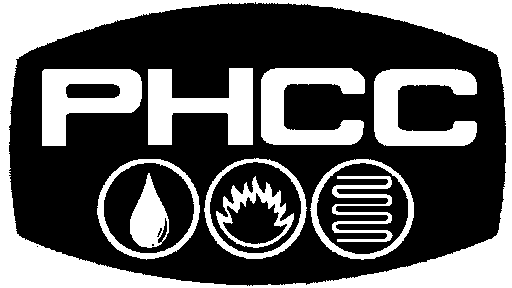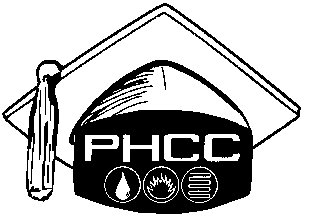|
|
Welcome to the
Archived History of the Plumbing, Heating, Cooling Contractors Association of Northern Virginia |
|
|
|
Welcome to the
Archived History of the Plumbing, Heating, Cooling Contractors Association of Northern Virginia |
|
The PHCC Gazette
Volume 3, Issue 21 Plumbing � Heating � Cooling � Contractors of Northern Virginia, Inc. June 1998
APPRENTICESHIP GRADUATION BANQUET
Back to PHCC Main Page
This June Meeting has a NEW LOCATION!
Fairview Park Marriott,
3111 Fairview Park Drive, Falls Church

This will be our 3rd annual Apprenticeship Graduation Banquet
See page 8 for details
Please support the apprentices by attending their graduation banquet and our last meeting before the summer brake!
Sponsors of the apprenticeship graduation banquet will be listed in the next PHCC Gazette.
At The Last Meeting
This was the last dinner meeting until September. But don't forget about the Apprenticeship Graduation Dinner on June 10th, 1998 at the Fairview Park Marriott. For further info. please call Mark Presgrave at My Plumber – 703-367-7900.
The sponsor for the dinner meeting was Vamac, Inc. who had Jim Hawes as their spokesman. Eljer was represented by Bill Clucker and gave everyone a brief update on their products plus provided literature.
Burnham jackets were won by Moe w/ John C. Flood and Robert Early w/ Roberts Air Cond. & Heating.
Glen Walinesta was the winner of the Eljer water closet.
William Baumbach won the 50/50 drawing and he received $47.00 for his winning number.
Bryan Casey with Mclean Insurance talked to the members about the emergence of PEO's
.Hope everyone has a safe and great summer and look forward to seeing everyone back in September.
Fairfax County Increases Sewer Rate
Effective July 1, 1998 the sewer rate goes from $2.60 to $2.70 per 1,000 gallons a 4% increase. This is approximately $1.75 per quarter for the average customer. Surf on over to
www.co.fairfax.va.us/gov/dpw/ss/Internet News

NATE’s Web Site
Need to know about technical certification for the HVAC industry? Visit the updated web site for the North American Technician Excellence Program (NATE) at http://www.natex.org. NATE’s new web site is arranged so that technicians and contractors can find the resources they need to make NATE work for them.
News from PHCC-VA

Congratulations! Major Award-Winners 1998 Convention & Expo
James S. Steinle
Contractor Of The Year
Number One in Virginia
Kenneth Baker
Virginia Air Distributors, Inc.
Industry Member Of The Year
The Best of the Best
Ross McDaniel
J & H Aitcheson
Industry Member Of The Year
The Best of the BestTerrell D. Mosely
James B. Muncy Award
Exemplifying the Very Best in Dedicated Service
Lorrie J. Norton
VA PHCC Legislative Award
Our Number One Watchdog
Jody Lilliston
VA PHCC Committee Member Of The Year
Rising Star Award
News from PHCC-NA
Learn how you and your employees can drive more safely!
Order the brand-new "The Blindfold Effect," a new Plumbing-Heating-Cooling Contractors-National Association video developed in partnership with Federated Insurance Companies. All PHCC members and their employees, whether they drive for work or personal reasons, can benefit from the message in the program.
The interactive video emphasizes these safe driving tactics:
Anticipate hazards
Adjust to conditions
Assume nothing when driving
The video features three simulated collisions and the events that preceded them. The collisions focus on driving situations that involve more than half of all collisions: intersections, following too closely and backing up.
"The Blindfold Effect" can be used in a group or viewed individually. Order it today! Member Price: $19.95; Non-Member: $24.95.
Monthly Meeting Changes
Smoking will be discouraged also affective January 1999 the meeting sponsorship fee will be $1,000.00 and the Bar will be CASH only.

Newsletter Changes
The PHCC Gazette will go from a four-page newsletter to eight pages. Some of the extra pages will be used for advertising sponsorship. It cost the PHCC over $8,000.00 per year and we need to recover some of this cost.
The numbers of pages are limited and ad space will be offered full-page, half-page, quarter-page, business-card size and will be on a first come first served basis. PLEASE show your support for the PHCC & the PHCC Gazette and call today, contact William J. Baumbach II @ 703-367-7900
Industry member Pro-Health Carpet Cleaning already has sponsored a fill-page.
Industry Membership
"For J&H Aitcheson, one of the greatest benefits is the exposure that we get being a part of VA PHCC...It results in a great deal of business for us."
Ross McDaniel, J&H Aitcheson
Industry Members are trade manufacturers, representatives, and wholesalers. The following list are Industry members of the PHCC State of Virginia and Northern Virginia Chapter.
PHCC members are encouraged to support our Industry members and the PHCC encourages them to support our monthly meetings.
Many listed here have sponsored the monthly meeting many times over the years and we thank them very much for their support. However many listed here have been Industry members for years and have NEVER sponsored our local meeting, WE NEED YOUR SUPPORT!
Industry Member Annual Dues: $300
To become an Industry Member, send your check for $300 to:
VA PHCC, 1001 East Broad Street,
Suite 225, Richmond, Virginia 23219
You can also telephone, fax, or e-mail your request to VA PHCC. We will invoice you.
Telephone: (800) 808-2638 Fax: (800) 862-7333 E-mail:
J & H Aitcheson, Inc.
Barger & Associates
BF Goodrich
J.C. Bradford & Co.
Brock Tool & Supply
B. F. Goodrich
Hajoca Corporation
McCann Motors, Inc.
Metro Gas Corp.
RepSouth
Shank Wholesalers, Inc.
Superior Equipment Sales Inc.
Virginia Natural Gas

Like It or Not, Here's the Cup

Drug Testing Has Fast Become Essential to Getting and Keeping a Job
By Kirstin Downey Grimsley Washington Post Staff Writer Sunday, May 10, 1998; Page H01
Congratulations -- you've got the job.
Well, almost. At most big U.S. companies today, you still face the final hurdle of a drug test. Most likely they'll ask you to take a urine test -- which means you'll have to pee into a plastic cup. That procedure has become an essential step to employment, and one that is changing the rules of the American workplace. With little public debate, big corporations have adopted what amounts to a zero-tolerance policy toward illicit drug use, at least by new employees. Almost all of the nation's Fortune 200 companies, for example, have instituted drug-testing programs in the past decade. Surveys by the American Management Association, a trade group whose members are disproportionately large companies, estimates that about three-quarters of their members do drug testing -- most on a pre-employment basis but with a growing number testing their workers randomly as well. Employers who institute drug testing believe it causes the rate of employee drug use to fall. Indeed, according to statistics released last month by SmithKline Beecham Clinical Laboratories in Collegeville, Pa., positive drug-test results have plummeted to 5 percent, from 18.1 percent in 1987. Workers in safety-sensitive positions have the best records, according to the firm's statistics, with only 3.5 percent testing positive for illegal drugs. But back to practicalities. You're hoping to get hired by one of those prosperous, drug-averse Fortune 200 companies. So what can you look forward to when it's time for the mandatory pre-employment drug test? You'll report to what is called a "collection site," probably a small clinic or a doctor's office. You'll show a picture identification card and fill out some paperwork authorizing the facility to show these medical records to your prospective employer. You'll probably want to volunteer what prescriptions drugs you may be taking -- a prescription painkiller authorized by your physician, say, which the lab technicians might confuse with an illegal substance. That drug disclosure, too, will become part of your record. The nurse will ask you to remove your coat and place your purse or briefcase in a storage facility -- making it more difficult for you to conceal anything you might have brought along to try to disguise the results. Drug-test experts know there are a variety of products for sale on the Internet that purport to conceal signs of drug use -- THC Terminator Drink; teas made with roots and barks that flush out the system; herbal cleaning shampoo; the Wizard's Randomizer. Experts say they're mostly ineffective, but the collection facility still wants to make sure you don't try. You'll be given a specimen container about the size of a coffee cup and ushered into a stall or powder room, which probably won't have running water. The water in the toilet is likely to be colored blue. The testers will want to make sure you're not trying to dilute the specimen you're giving them. You'll urinate into the cup, or at least try. Some people can't complete the task, stymied by a kind of performance anxiety. It's the "shy bladder" problem, says Bernie McCann, a former consultant to the National Institute of Drug Abuse and the Laborers' Health and Safety Fund's in-house expert on substance abuse. People with shy bladders are invited to visit a doctor, who will examine them to make sure they have a legitimate medical problem and are not simply trying to avoid the test. The specimen will be examined visually. Is the color right? How about the temperature? Some drug users have attempted to smuggle in other people's urine, seeking to pass it off as their own. (It seems some people actually sell their drug-free urine to drug users.) The temperature must be exactly right, so drug users who have smuggled in someone else's fluids sometimes try to heat it with a small hand warmer, like the ones hunters use to keep from getting frostbite. The specimen will be sealed in a tamper-proof container, and you'll initial it to witness that it was handled properly. Then it's off to the laboratory, which will check for adulterants and then screen for metabolites -- the chemical byproducts that show the person used a drug within the past few days or weeks. If your results are negative, the laboratory will call the employer with the good news -- and it's time to start talking salary. But if your results are positive -- meaning they show the presence of drugs -- the laboratory will conduct a second test that can screen the sample with almost 100 percent accuracy. If this second screen is positive, a medical review officer -- a doctor with expertise in forensic medicine and substance abuse -- will review the results. The doctor will call you to determine whether any unusual circumstances could have produced a false positive. One famous such exception: Poppy seeds -- like the kind on the top of bagels -- have at times falsely indicated heroin use. Now it's crunch time. The doctor makes a final determination that your test was positive for drugs and informs the employer. That usually means you're back to square one.
Quick Acceptance
But how did workplace drug testing become so pervasive so quickly? The answer seems to be that corporations saw many benefits -- especially in reducing the incidence of drug-related accidents in the workplace -- and almost no drawbacks. Indeed, except from civil libertarians, there have been few public protests. The spread of testing has been extraordinarily rapid, particularly at big companies that offer good pay, health insurance, benefits and pension plans. In 1983, only six firms out of the Fortune 200 were testing their workers for drugs, but by 1991, 196 of the 200 largest companies were doing it, said employment lawyer Mark de Bernardo, executive director of the D.C.-based Institute for a Drug-Free Workplace, an employer group. "To go from six to 196 of the Fortune 200 in only eight years, that's really revolutionary," de Bernardo said. "Typically the wheels in Corporate America don't turn that fast. This was a movement that spread from CEO to CEO." De Bernardo said the trend was propelled by industry concerns about safety issues, absenteeism, productivity and liability for accidents, and its growth was hastened by waves of government regulation advocating drug crackdowns. Now, he said, it has spread outward to businesses of almost every size around the country -- the notable exceptions being Hollywood and Wall Street. In the entertainment business, companies fear losing celebrity employees who generate big profits despite their drug use, de Bernardo said. In the financial markets, he said, firms have what he called a "short-term mentality" that allows them to overlook drug dealers plying their trade on the streets of lower Manhattan and that enables brokerage houses to overlook high burnout levels and high turnover among their employees. It's unclear just how many firms are testing for drugs, although most experts believe the number is steadily growing. Pre-employment tests are the most common. But the American Management Association study found that about 60 percent of the firms that administer tests are also surprising current workers with random drug tests. The Department of Labor, which surveys a much broader range of small firms in its surveys, has estimated that overall, only 20 percent of the nation's employers are now testing for drugs, affecting about 40 percent of the country's work force. The big impetus to adopt testing, many experts say, is the simple fact that employers believe it successfully weeds out drug takers. They say it fends off serious users because they can't keep clean, even for the short period of time required to wait for drug residues to disappear from their bodies before pre-employment screening. And it helps companies identify current drug users and potential drug abusers on their staffs. SmithKline figures indicate that marijuana remains the primary drug of choice among users, making up about 60 percent of the test-positive samples. Cocaine use is second-favorite, though it is declining, dropping to 16 percent in 1997 from 23 percent one year earlier. The risk of failing a drug test may actually cause some workers to give up illegal drugs entirely, particularly if they have just used them recreationally, and prods others to recognize they have a substance-abuse problem and seek help through company-provided employee assistance programs. "Employers are saving lives," de Bernardo said. "People are going straight." But as drug testing has spread among the biggest firms, a kind of two-tiered structure has emerged in the workplace. As drug users know, there are workplaces that always test -- and there are workplaces that never do. "People who use drugs don't apply at a company they know drug-tests," said Dale Masi, a professor of social work at the University of Maryland at Baltimore and president of Masi Research Consultants, a D.C.-based firm that advises major corporations on how to handled substance-abuse problems in the workplace. "Companies know that if their competitors do it, they have to do it, or they will get all the users," Masi explained. "The individual with behavioral problems goes to the place of least resistance, and that happens to be in small businesses," said Harold Green, president of Chamberlain Contractors Inc., a Laurel-based paving company. He instituted a drug-testing program 15 years ago, after a marijuana-smoking employee was involved in a serious truck accident. He fired the driver -- and then established a drug treatment and employee assistance plan, including drug testing, that was one of the first of its kind in the country. When Green set up his drug-testing plan, it was nearly unprecedented, particularly among small firms like his. Many observers and critics considered it jarringly invasive to ask job hunters or employees to urinate in a cup to prove themselves drug-free. But such criticisms were gradually overwhelmed by a louder chorus of support.
Uncle Sam's Example
Much of the push toward drug testing has come from the federal government. In 1982, the Navy began the first broad-scale random drug testing after an aircraft accident aboard the USS Nimitz uncovered widespread drug use about the ship. The practice soon spread to other branches of the military. Then drug testing was introduced in safety-sensitive government agencies such as the Nuclear Regulatory Commission, and mandated for government contractors with contracts worth more than $25,000. Several horrific accidents spurred drug testing in the transportation industry. In 1987, two trains collided in Chase, Md., causing 16 deaths, and it was later revealed that one of the train's engineers had been smoking marijuana before the collision. And in 1991, eight people were killed in a New York subway in which where the train's driver later tested positive for alcohol. These incidents led to the passage of the Omnibus Transportation Employee Testing Act of 1991, which required the Department of Transportation to mandate drug and alcohol testing of employees in safety-sensitive transportation positions in private companies. For many employers, the omnibus transportation law was key, because once a company began testing some workers -- such as drivers who delivered merchandise to stores or who operated equipment in the warehouse -- it became convenient to expand the policy company-wide.
Privacy, Other Concerns
Some critics say drug testing has gone too far. The American Civil Liberties Union has long opposed drug testing on philosophical grounds, saying that it is an invasion of privacy and that employers should not be allowed to dictate to workers about off-duty activities. The ACLU also questions some of the research on increased productivity and lowered absenteeism touted by drug-testing enthusiasts as scientifically tainted by funding from the drug-testing industry. "My impression, quite frankly, is that it has been the government and the testing industry that have driven this thing, more than the employers," said Lewis Maltby, director fo the ACLU's national task force on civil liberties in the workplace. Maltby and others also questioned whether recreational users of illegal drugs, who are not necessarily drug abusers, should be persecuted and perhaps fired if their drug use is not really a problem for their employers. Employee assistance expert McCann, too, raises questions about the effectiveness of drug testing in screening out drug users. "Let's face it: Pre-employment testing is an idiot test," he said. "All it proves is that you abstained for a week before the test." He also wonders whether drug users are simply being pushed into smaller firms or into unemployment. "Are people just moving into self-employment, such as becoming taxi drivers, where they are not subject to this scrutiny?" he asks. But if McCann and the ACLU are somewhat skeptical, drug users themselves are outright angry. On a World Wide Web site called the Hemperor, dozens of drug users have posted messages, some studded with obscenities, expressing their outrage. "Drug testing is keeping decent, hard working people out of jobs while alcoholics can run the [expletive] country," wrote one Web surfer, who said his doctor had told him that marijuana poses "no harmful effects to the body." Some reviled workers who they depicted as cowardly, caving in to employer pressures to be tested. "Does anyone realize that most NEWSPAPERS require testing? Those wimps went down not only without a fight -- but without a whimper," wrote one correspondent. (The Washington Post, like other major newspapers, does indeed require a pre-employment drug test for new employees.)
The Little Things
A snapshot of how drug testing works comes from Tom Warner, president of three D.C.-based plumbing, heating and air conditioning companies that together employ 92 workers. He wasn't pushed to his drug-testing policy because of any big disaster. Instead, it was little things, such as recurring minor accidents and foolish mistakes. He remembers one experienced technician, for example, who had inexplicably used his bare hands on a sewer-contaminated piece of machinery, rather than use his gloves. "It wasn't something a rational person would do," he recalled thinking at the time. Warner decided to introduce drug testing, and the first results startled him. About half of a group of new trainees failed, as did the worker who had failed to use his safety gloves. Some drug users quit rather than be tested. Warner decided to clean out the problem workers by simply firing people who tested positive for drug use. They are invited to reapply after one year and will be rehired if they pledge to remain drug-free. Few drug users either apply or reapply now, Warner said. "It's known we're a drug-free company," he said. "People who do drugs want to do drugs -- and want to be in a place where they can."
Workers and Drug Use
The percentage of major firms requiring employee drug tests has escalated in the past decade* . . . and the percentage of employees who test positive has declined significantly. *1997 data not included because the survey was conducted differently that year. SOURCES: American Management Association, SmithKline Beecham Construction workers are among the category of employees reporting the highest usage rate of illegal drugs. Percentage of employees, 18-49, reporting use of illicit drugs in the past month
Construction -- 15.6% Sales -- 11.4% Wait staff, bartenders -- 11.2% Handlers, laborers -- 10.6% Machine operators -- 10.5% Precision production -- 8.6% Administrative support --5.9% Other service -- 5.6% Executive, managerial -- 5.5% Technicians, related support -- 5.5% SOURCE: National Institute on Drug Abuse Which drugs were present in positive tests: Marijuana -- 60% Cocaine -- 16% Opiates -- 9.4% Amphetamines -- 4.9% Barbiturates -- 3% Other -- 6.7% SOURCE: SmithKline Beecham � Copyright 1998 The Washington Post Company


1998 APPRENTICESHIP GRADUATION BANQUET
REPLY FORM
Reservations must be made no later than Wednesday, May 27, 1998. You must return this reply form to confirm your reservation. Any reservations received after May 27 will be expected to pay at the door.
DATE: Wednesday, June 10, 1998 Platinum Package ____________ @ $500.00
TIME: 6:30 - 9:30 p.m. Gold Package _______________ @ $250.00
Dinner Included, Cash Bar Silver Package ______________ @ $125.00
PLACE: FAIRVIEW PARK MARRIOTT
3111 Fairview Park Drive Single Reservation ___________ @ $ 35.00
Falls Church, VA
TOTAL ENCLOSED:
NAME OF ATTENDEES (Table can be reserved for parties of 8 or more):
COMPANY: PHONE:
Checks should be made payable to "NVPHCC" and returned with this form to:
Mark Presgrave
9975 Pennsylvania Ave
Manassas, Va. 20110
Phone: 703-367-7900 Fax: 703-691-0946 E-mail:
Mark@MyPlumber.com
All reservations must be received with payment by May 27, 1998. Tickets will be available at the door at a cost of $40.00 per person.
Directions to the Fairview Park Marriott, 3111 Fairview Park Drive, Falls Church, VA: From the Beltway, take exit 8 (Rt. 50 Arlington Blvd.) heading towards Arlington. Follow the signs for Fairview Park South to the right. Turn right onto Fairview Park Drive. The hotel will be approximately 1/4 mile on the left. Complimentary parking is available in the garage at the rear of the hotel.
Back to PHCC Main Page